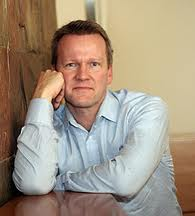De ‘Fourth Way’ van Hargreaves & Sahlberg: Waar gaan we heen in onderwijsland en waarom?
11 november 2014
Pasi Sahlberg en Andy Hargreaves zetten in een blog uiteen waar we in de westerse onderwijswereld vandaan komen en waar we heen gaan. Een toenemende focus op academisch succes (met name bij rekenen en taal) leidt tot een vermindering van tijd, inzet en aandacht voor andere 'vakken'. De twee mondiaal gewaardeerde onderwijskundigen pleiten voor een ‘Fourth way’ - een weg van verandering die leraren inspireert en verbindt met de gemeenschap én waardoor leerlingen kunnen excelleren. Een artikel over een noodzakelijk basisvertrouwen in 'skills and attitudes, just as critical as content knowledge.' Een blog van het Whole Child Education-initiatief. Educational systems across the globe are under pressure to change. Many countries are focusing attention on additional accountability, school choice and competition, short-term outcomes, and data-driven decision making (what have been called the "second" and "third" ways).
Educational systems across the globe are under pressure to change. Many countries are focusing attention on additional accountability, school choice and competition, short-term outcomes, and data-driven decision making (what have been called the "second" and "third" ways).Fourth way
Many high-performing countries and systems, however, are reexamining their structures and policies to move toward greater collective professional autonomy from bureaucratic control, stronger active involvement of local communities, and diversified teaching to respond to today's widely varying populations of learners.
This "fourth" way of educational reform heralds the next stage for educational improvement—a movement which reverts educational authority back from centralized bureaucracies to educators and communities, diversifies skills and content taught to suit each community and context, and is driven by the inspiring and also basic belief that there are skills and aptitudes that are just as critical as content knowledge.
 A global chasm of educational achievement and emphasis is opening—a vast rift that is not only separating high-performing countries from low-performing ones but also dividing the dynamic innovators from the standardized fabricators of test score improvements in basic skills. The region that is widely touted to be the economic powerhouse of this century, Asia, has already begun to actively reinvent its educational systems around educational innovation, school-designed curriculum, and intelligent uses of technology: when traditional bureaucracies want to do no more than raise the bar in basic achievement, centralize and standardize the core curriculum, and introduce technology in a fast and faddish hurry. What the U.S. devalues or dismisses as soft skills are, for overseas competitors, the hard-edge entrepreneurial essentials of 21st century success.
A global chasm of educational achievement and emphasis is opening—a vast rift that is not only separating high-performing countries from low-performing ones but also dividing the dynamic innovators from the standardized fabricators of test score improvements in basic skills. The region that is widely touted to be the economic powerhouse of this century, Asia, has already begun to actively reinvent its educational systems around educational innovation, school-designed curriculum, and intelligent uses of technology: when traditional bureaucracies want to do no more than raise the bar in basic achievement, centralize and standardize the core curriculum, and introduce technology in a fast and faddish hurry. What the U.S. devalues or dismisses as soft skills are, for overseas competitors, the hard-edge entrepreneurial essentials of 21st century success.Lees hier de rest van het artikel.


Reacties